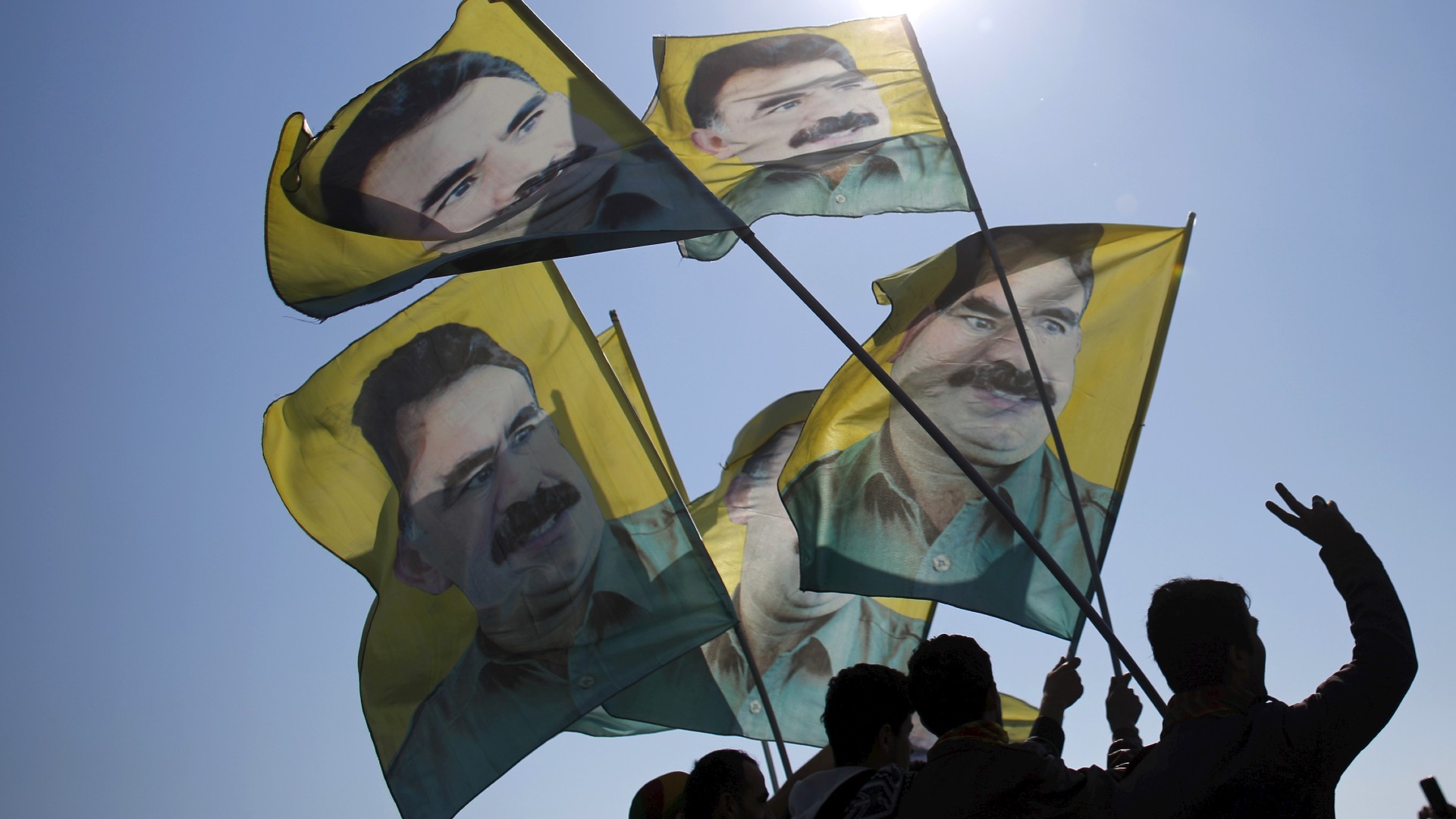PKK to officially disband this week sources say

The Kurdistan Workers' Party (PKK) is expected to announce as soon as Friday that it has decided to end its armed struggle against Turkey and will disband itself, two sources familiar with the matter told Middle East Eye.
The decision follows a statement issued in February by the PKK’s imprisoned leader, Abdullah Ocalan, in which he called on the organisation he founded more than 40 years ago to lay down its arms.
On Friday, the PKK said that it held a congress from 5 to 7 May and discussed Ocalan’s call.
It said it has taken decisions that have historical importance, “which we will announce very soon with relevant documents and information”.
In his February statement, Ocalan described the armed struggle as a product of a bygone era. In a one-and-a-half-page message, Ocalan explained that the PKK's armed struggle was once necessary due to Turkish state policies that denied Kurdish identity and restricted Kurds' rights and freedoms.
New MEE newsletter: Jerusalem Dispatch
Sign up to get the latest insights and analysis on Israel-Palestine, alongside Turkey Unpacked and other MEE newsletters
"The PKK was born in the 20th century, in the most violent epoch of human history - amidst the two world wars, under the shadow of real socialism and the Cold War," Ocalan wrote.
However, he argued that the Turkish government's recent democratic reforms on Kurdish issues, along with regional developments, have rendered armed struggle obsolete.
"All groups must lay down their arms, and the PKK must dissolve itself," he said.
Ocalan’s reference to “all groups” is understood to include the PKK’s affiliates and offshoots in Syria and Iran, as well as its umbrella organisation, the Group of Communities in Kurdistan (KCK), which operates in those countries as well as Iraq and Turkey.
In March, the PKK publicly announced that it would comply with Ocalan’s directive and declared a ceasefire.
As part of ongoing negotiations between Ocalan and the Turkish government, a separate deal was reached in March between Mazlum Abdi Şahin, commander of the PKK-linked Syrian Democratic Forces (SDF), and Syrian President Ahmed al-Sharaa.
The agreement grants Damascus full control over state institutions in northeastern Syria, effectively nullifying the possibility of a Kurdish state or a federal system in the country.
Many analysts view Ocalan’s call as a direct consequence of Turkey’s military success in isolating the PKK in Iraq’s Qandil mountains.
Since 2016, Turkish forces have used advanced drone technology and electronic warfare capabilities to deprive the PKK of territorial control and infiltration routes.
It remains unclear how the PKK will surrender its weapons. Some sources in Ankara suggest that the Iraqi government may play a role in collecting and registering the weapons, in cooperation with neighbouring countries.
Foreign fighters in Syria are expected to leave to their home countries. Those who choose to enter politics will be integrated into their respective national political systems. Senior KCK leaders are reportedly set to be relocated to third countries.
Some observers believe that PKK leaders may be resettled in Sulaymaniyah, a region of Iraq controlled by the Patriotic Union of Kurdistan (PUK), a political party historically supportive of the armed group.
middleeasteye.net